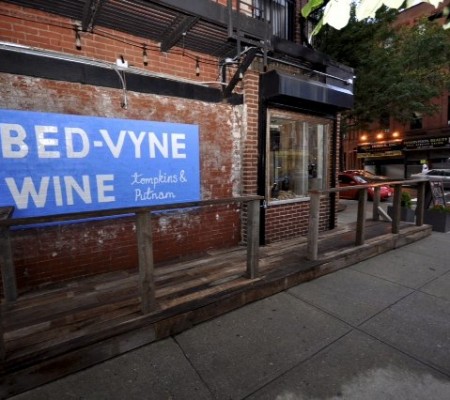5 Small Business Strategies Global Marketers Should Try This Summer

Have you've ever heard someone refer to the world as "getting smaller?" Obviously we know, physically, that's not possible. However, our reach has instead expanded. Technology, specifically the internet, has made us all global citizens. It all happened so quick and its hard to imagine a time when we didn't have access to our internet and smart devices.
Interestingly enough, I can remember when everything changed, and the world got smaller, at least personally. The year was 1999. I was a Sophmore at West Virginia University, disconnected from family and friends, still new to email, I discovered a device made by an unknown company, Logitech (Today they're a publicly traded global consumer computer accessories giant.) The device was a headset with a dual headphone and microphone plug. With domestic long distance calling still a commodity, running as much as 10 cents a minute, this device allowed displaced students like me, to interface with a website and make calls over the net. This was the beginning of what would later become Skype. I was simply a few hundred miles from home but worlds away and technology bridged this gap.
Today, this bridge is a given. We now assume access to a global world. However, as marketers we have done little in those 19 years to access and target local communities. As an industry, our thinking has been lazy and broad. We use a one-size-fits-all approach with small variable tweaks. For small business marketers such inefficient strategies aren't a mistake they can afford to make. Here are 5 small business hyperlocal strategies, global marketers should try this summer.
Make a Deal With the Devil
With the complexion of Main Streets around the U.S. changing, small businesses have had to think smart and work together to survive. Even national big box stores like Circuit City have fallen victim to top of the food chain giants like Amazon. Former competitors have had to band together. Small businesses have formed coalitions with former competitors to secure more competitive pricing through bulk discounts on materials, health benefits and other resources.
Putting the ego and traditional business cardinal sins to the side in favor of survival is a valuable lesson for marketers. Hyperlocal partnerships with smaller competitors are a great way to win the favor of targeted geographies. Starbucks recently opened a store in our office building, in effort to service employees from the huge NYC public hospital across the street. Starbucks partnered with a local small business coffee shop, which catered events for its new employees while construction was finished on the new store. In return, Starbucks also provides free barista training for the coffee shop's employees. While on the surface they're competitors, their audiences, menu's and price points are quite different. There was room for both in the marketplace.
Don't Just Pop Up
The pop ups have been around for quite a while now but under utilized. When hyperlocally targeting a community, you must be present. Small businesses have no choice but to be local. Pop Up shops serve as a test ground or focus group in a given geography. Leverage the great weather, and depending on local regulations, extend it to a sidewalk sale. Marketing B2B? Rent a desk or open an office in a co-working space like We Work.
Small businesses are going back to basics and marketers should follow suit. Get in front of your customers. Spend time with them and learn what they want. There's not one solution, find out what the unique challenges are for that area and deliver results.
Ring the Bell
Gone are the days of door-to-door sales but we often has a misconception why. Its not that visiting prospective customers in their homes or places of business doesn't work or isn't efficient, it was the approach. Salespeople focused on them and their product, not the consumer and their challenge. Small businesses subscribing to a hyperlocal inbound strategy are having huge successes and you could too.
If the particular challenge facing the community, provide solution based value. Inbound marketers often do this with informative content pieces, and you can bring that value right to customers door step. Instead of ringing bells, invite them to a branded lunch and learn, sponsored festival or concert. In exchange for the freebee, you can introduce a new product or service line or introduce yourself to the hyperlocal market.
It you Plant It, It Will Grow
Small Business owners are growing their businesses by investing in local education. Unable to compete for top, high-priced talent, entrepreneurs are electing to groom interns into full-time personnel. This grassroots approach enables them to train would-be talent without the financial risk. When they're ready to assume a position within the company, they can hit the ground running.
Summer is a great time to secure future talent with many college students home from or out of school. By targeting locally, you further relationships within the community, not to mention within the college, if they're local. Human resources are just like any other resource, by sourcing local, the business is more responsible and sustainable.
Enjoy Summer Fridays
One of the advantages of any small business is for them to take risks and be nimble. This isn't necessarily a luxury often afforded to many larger entities. With many families using the summer to vacation, this can be a slow time for business. This is a time many entrepreneurs launch new ideas and could provide your team fertile testing ground for new marketing ideas.
Take some time to brainstorm with your team a Summer's worth of pie-in-the-sky ideas that you can try this summer. Select one a day a week, say Friday when many people are out anyway, to implement one of those ideas by trying something or targeting new hyperlocal geographies. Be sure to measure and track your results. Understand that not everything will work so don't fall in love with any one single concept. If at the end of the summer one concept that you can build a strategy around sticks, consider it a success.
While a cliche, its true, small businesses are the backbone of the American economy. Not only because they're an important economic engine but their creative marketing strategies, built of survival and necessity drive innovation. By having an appreciation and respect for the entrepreneurial spirit there are many lessons a marketer can learn.
Share this
Previous story
← 5 Tips to Build a Grassroots Media Sales Team
You May Also Like
These Related Stories
4 Lessons from Running my First Facebook Advertising Campaign


4 Lessons from Running my First Facebook Advertising Campaign
September 23, 2022
4
min read
5 Social Media Business Marketing for Talking Politics


5 Social Media Business Marketing for Talking Politics
February 21, 2017
4
min read
Growing Your Small Business in the Amazon Age


Growing Your Small Business in the Amazon Age
August 07, 2018
5
min read


